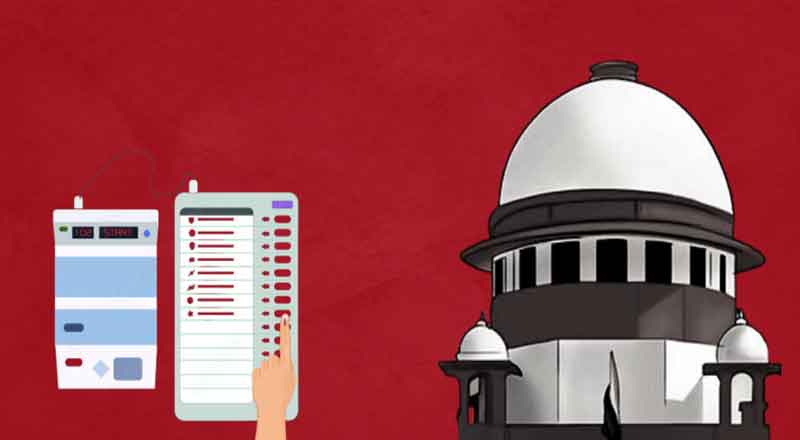India, the land of colors, has opposed the rainbows for too long just like many other nations. It is a country where people are unable to accept Lesbian, Gay, Bisexual, Transgender and Queer community for their preferences. The common dialogues floating around the societies include, “oh look, how is he speaking and dressed’, “why is she dating a girl” or going down to the foolish thoughts of men wearing pink is ‘gay’ and so on. Yes, incredible India is not that incredible for the LGBTQ community at all. This is why coming out of the closet is not something that is very common, owing to the honor killings and hate crimes done in the name of genders and faiths.
The previous generations might not accept or acknowledge the beauty of love in this form. Not the previous generations alone, but even the current generations spew venom against such relations, calling them names and sharing nothing but hatred against them. Sometimes, they argue by bringing in culture and history in debates or even going to the length of calling it evil, but the homophobic country we know today, has shared quite a different history altogether.
Flipping the pages of history, it has pieces of evidence that homosexuality was prominent in the country, instead of being criminalized or considered to be a sin. No, this isn’t something from the early ’90s or even ’50s, but from 950 A.D., the flourishing ancient India or Aryavrat. The UNESCO World Heritage Site, Khajuraho Temples, serve as the breathing proof of the beauty of acceptance and respect among the citizens. This era not only accepted the beauty of same-gender relationships, but portrayed them as art on the murals carved on the temple walls.
Along with numerous evil practices, the modern-day homophobia was introduced to this country by the British Raj. Termed as unnatural offenses, homosexuality was criminalized in 1861 with the introduction of section 377, which was later absorbed by the Constitution of India.
“Unnatural Offences—Whoever voluntarily has carnal intercourse against the order of nature with any man, woman or animal, shall be punished with [imprisonment for life], or with imprisonment of either description for a term which may extend to ten years, and shall also be liable to fine. Explanation—Penetration is sufficient to constitute the carnal intercourse necessary to the offense described in this section.”
Imagine the horror, in the simplest of terms, ‘love’ was considered to be a crime. And it continued to be a crime till 5th September, 2018. 6th September, 2018, marked the wave of change in India, as Supreme Court of India issued its verdict, declaring the section 377 of the Indian Penal Code to be unconstitutional and repealed it for in so far as it criminalizes consensual sexual conduct between adults of the same sex.
“Criminalizing carnal intercourse is irrational, arbitrary and manifestly unconstitutional.”— Chief Justice Dipak Misra
“History owes an apology to these people and their families. Homosexuality is part of human sexuality. They have the right of dignity and free of discrimination. Consensual sexual acts of adults are allowed for the LGBT community.”— Justice Indu Malhotra
“It is difficult to right a wrong by history. But we can set the course for the future. This case involves much more than decriminalizing homosexuality. It is about people wanting to live with dignity.”— Justice Dhananjaya Y. Chandrachud
With over 2.5 million of LGBTQ population in the largest democracy of the world, this community won its right to exist and express love without being charged with crimes, but there is a long way to go before they win the fight for equal rights. Yes, the Supreme Court has declared section 377 to be unconstitutional, but the LGBTQ community still cannot marry each other, as such marriages are not recognized under Indian laws. In addition to it, the LGBTQ community cannot serve the country by joining the military, as their admission to armed forces is prohibited. Source
When the focus is shifted from the courts to the civilians, the scrapping of section 377 of IPC does not make much of a difference. The Indian population, being rigid, judgmental, rudimentary and orthodox (considering their re-defined culture), has failed to accept the change, which usually misses on. Outcome? The plain hatred and disgust from the LGBTQ community, even while the Supreme Court of India accepts and welcomes their relations.
Love, a four-lettered word, knows no shape, caste, creed, borders, boundaries and surely no gender as well. It is a feeling that the best of philosophers, writers and poets tried to define, but failed, as no language holds the capability to define it completely. When nature has never taken sides while offering its love and blessings to us, how could we choose sides and genders? Who are we to justify what genders should fall in love, what shall be the segregation or the pairings? We need to understand that people love each other, regardless of gender, and it is not something unnatural. It has been existing in nature since the beginning of time, be it humans or other species. As quoted by Vir Das lately, straight men are afraid of gays, not because they might hit on them, but because the straight men might end up liking them.





